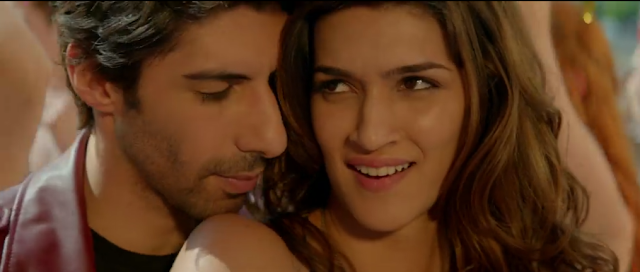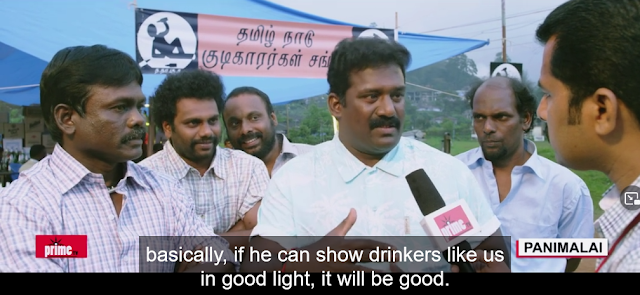As I write this, Sooryavanshi, the latest installment of Rohit Shetty's "Police Universe", is breaking all sorts of box office records in India. It's not available anywhere near me yet, so instead I'm going to take a look at an earlier installment of the "Police Universe." Little Singham: Samundar Ka Sikandar (2021) recounts the time when Singham, the unstoppable supercop played by Ajay Devgn, traveled to an undersea kingdom, rescued a mermaid princess, and fought a giant squid. It's weird that he never mentions this stuff in the movies.
Of course, this isn't exactly Singham as played by Devgn; it's Little Singham, because apparently when he was a child Singham was already a police officer who fought demons and mutant animal hybrids. (Frankly, the gangsters and terrorists he deals with as an adult are a bit of a step down.) Why is Little Singham already a cop? He just is, okay? Apparently he maintains a secret identity, though it doesn't come up in this movie at all. We do get to meet young Singham's annoying sidekicks, though: Chikki, who is a monkey, and Lattu, who is not a monkey.
Singham and a good portion of his supporting cast are on a cruise ship near Hawaii when the ship strikes a rock and begins to sink. Little Singham springs into action and saves all of the passengers and crew, but the ship sinks to the bottom of the ocean and bounces off of a mysterious domed undersea city.
Meanwhile, under the sea, the monstrous Jalgohra, nephew of King Sagadeer, and Haivaan, aquatic villain with a magic staff that can create undersea storms, decide to join forces and conquer both the undersea world and the world above. The shipwreck gives them a chance to try and capture Princess Laharika, who is sometimes a mermaid and sometimes a whale. The whales of the ocean send out a distress call which Singham can understand for some reason, so he and Chikki and Lattu put on their advanced wetsuits and dive to the rescue.
Our heroes save the princess and she takes them into the undersea city, where outsiders are strictly forbidden. She casts a quick spell transforming them into hybrid sea creatures, but it only lasts about five minutes or so and then they are discovered, captured, and brought before the king. And that's when Jalgohra and Haaiwan strike and reveal their evil plan: they're going to release the monstrous octopus Vikraal, which will devastate the underseas kingdom and allow the villains to conquer under and above the waves. After a quick fight in which Singham nearly defeats them despite his hands being tied, the villains kidnap the king, and Singham and friends set out on an epic quest to find the magic pearl and trident they must use to save the day.
Well, I say epic; the movie is less than an hour long, so there's only so much adventuring they can fit in. The plot moves at an incredible pace, and there's no time for inconsequential things like "character development" or "explaining why these people are in Hawaii in the first place."
To be fair, I am very far from the target audience for this movie, and the children it is intended for have probably seen some of the many, many episodes of the Little Singham TV show rather than relying on what they know from the Ajay Devgn movies. And not always knowing what is going on doesn't prevent me from appreciating the sensational character find of 2021, "Guard Who Looks and Sounds Like Kermit."
























